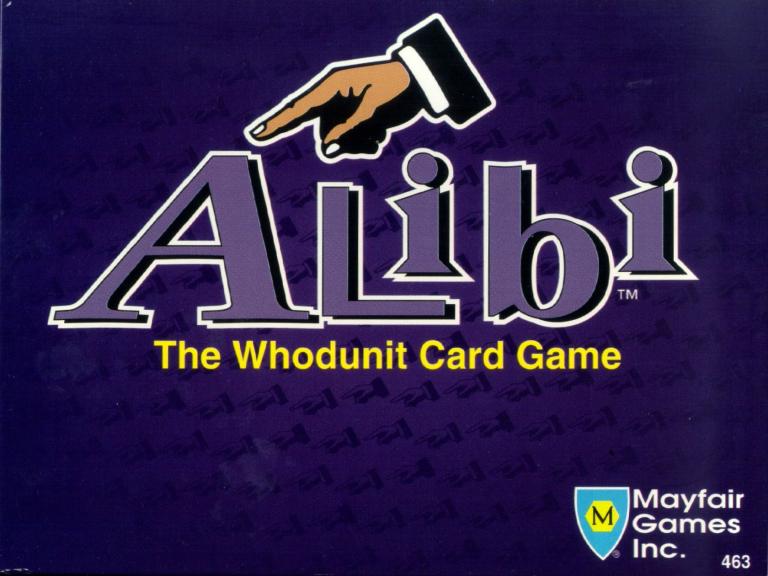Alibi

Alibi
The Whodunit Card Game: "Murder in the big city, and you must solve the crime. Brenda's dead, and foul play is suspected. To win, find out who did it, where, when, how, and why."
This is a card game that shares some similarities with Clue, but adds some other questions to the mix, like what time of day did it happen, and what was the killer's motive? To the usual process of elimination and deduction found in most Clue-type games, they've added scoring elements. You can collect sets of clues and reveal them to score points. Obviously, though, this aids the other players as well by eliminating some categories.
You start with a number of cards, each of which contains a specific clue. As play progresses, you can attempt to accumulate all the clues in a category, which will earn you points based on what turn you choose to reveal your set.
Each turn, you are allowed to direct a question to a specific player. The question must be answerable with a number. For example, you may ask "How many Cookie Carpenter cards do you have?" or "How many Jealousy cards have you seen?" Doing this will help you eliminate some of the icons (clues) on your score sheet.
Your other option during your turn is to make an accusation. You need to be careful though, since this also will end the game! On the other hand, you do get some bonus points for being the First Accuser.
Cards are passed after each player's turn. For the first round it is only one, but it increases by 1 for every round the game lasts.
Once someone decides to accuse, all players can make any guesses they want to, filling in the answers they've come up with for each category (Suspect, Place, Weapon, Emotion). You can also fill in the specific answer within a category for more points. The problem with guessing, though, is that wrong answers result in negative points, and the First Accuser loses double!
This is a card game that shares some similarities with Clue, but adds some other questions to the mix, like what time of day did it happen, and what was the killer's motive? To the usual process of elimination and deduction found in most Clue-type games, they've added scoring elements. You can collect sets of clues and reveal them to score points. Obviously, though, this aids the other players as well by eliminating some categories.
You start with a number of cards, each of which contains a specific clue. As play progresses, you can attempt to accumulate all the clues in a category, which will earn you points based on what turn you choose to reveal your set.
Each turn, you are allowed to direct a question to a specific player. The question must be answerable with a number. For example, you may ask "How many Cookie Carpenter cards do you have?" or "How many Jealousy cards have you seen?" Doing this will help you eliminate some of the icons (clues) on your score sheet.
Your other option during your turn is to make an accusation. You need to be careful though, since this also will end the game! On the other hand, you do get some bonus points for being the First Accuser.
Cards are passed after each player's turn. For the first round it is only one, but it increases by 1 for every round the game lasts.
Once someone decides to accuse, all players can make any guesses they want to, filling in the answers they've come up with for each category (Suspect, Place, Weapon, Emotion). You can also fill in the specific answer within a category for more points. The problem with guessing, though, is that wrong answers result in negative points, and the First Accuser loses double!
Player Count
3
-
10
Playing Time
30
-
45
Age
10
Year Released
1993